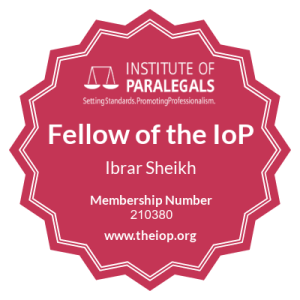When negotiations don’t seem to be going anywhere or your ex is refusing to even discuss finances then you might consider applying to court for a financial settlement.
The main benefit of going to court is that you will (eventually) get a final ruling and the court can enforce the ruling (for example by forcing your ex to sign over a property to you).
The downside of going to court is that it can get very expensive, especially if both sides use a solicitor. If you use a solicitor for the whole journey through court then your costs could be £5,000 to £10,000 (or more) each.
It is important to note that even if you have managed to get Legal Aid – you will most likely have to pay back your legal aid solicitors bill out of the settlement that you are awarded in court.
What can the court order?
In divorce disputes the court have a very wide remit to take action to distribute assets and income between a divorcing couple in order to achieve fairness.
The Court can only make orders provided for in the Matrimonial Causes Act 1973 (see list below). Other matters can be agreed but will usually have to appear in a separate part of the order known as the “Recitals” or one party may give a formal undertaking to do or not do certain things.
The Matrimonial Causes Act allows the following orders to be made:
- section 23 (1)(a) – Periodical payments (typically monthly payments for child or spousal maintenance)
- section 23 (1)(b) – Secured periodical payments (maintenance secured on a particular property or asset – we don’t often come across it)
- section 23 (1)(c) – Lump sum order (a lump sum of money – for example to buy someone out of their share on a property)
- section 24 – Transfer of property order (the most common example is the transfer of the matrimonial home from the joint names of the parties into the name of only one of them)
- section 24A – Sale of property order
- section 25A – Pension Sharing (i.e. an order which splits off part of a pension and allows for it to be invested separately to provide a pension for the other spouse)
- section 25 B – Pension Attachment (i.e an order which requires the pension
provider to pay out part of the pension lump sum receivable on retirement and/or the ongoing pension, to be paid to the spouse instead of to the pension scheme member)
- section 25C – Pension Attachment of Death Benefits
If there is a dispute about Child maintenance, the issue normally has to be referred to the Child Support Agency. Child maintenance can only be dealt with by a Court in certain circumstances:
- Where the parties are in agreement and the receiving party is not on income support;
- Where a child maintenance order has previously been made by the Court and there is an application to vary the amount;
- Where there is an application for payment of school fees;
- If either parent lives abroad
It follows that while Court orders do often include child maintenance, in most cases this will be where the parties have managed to negotiate an agreement as to figures payable.


